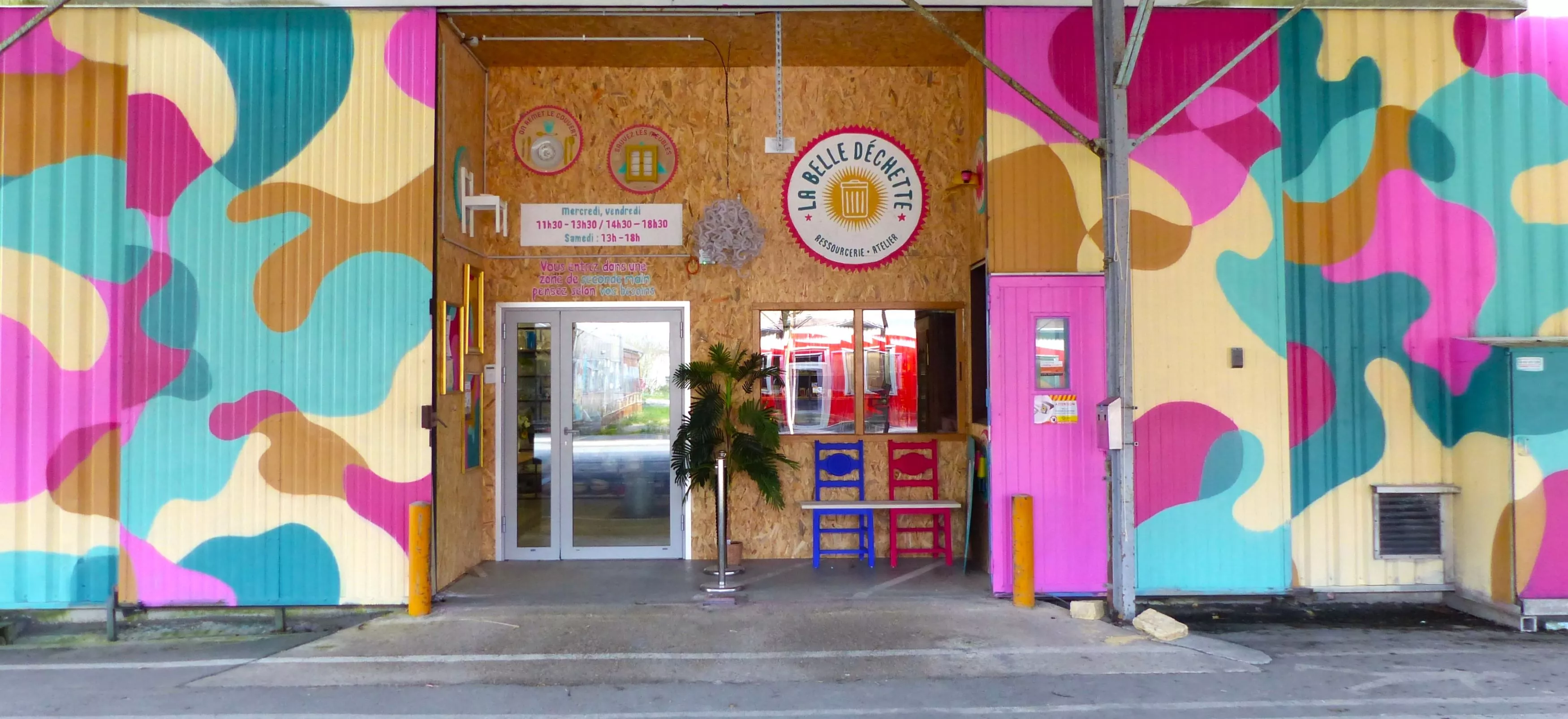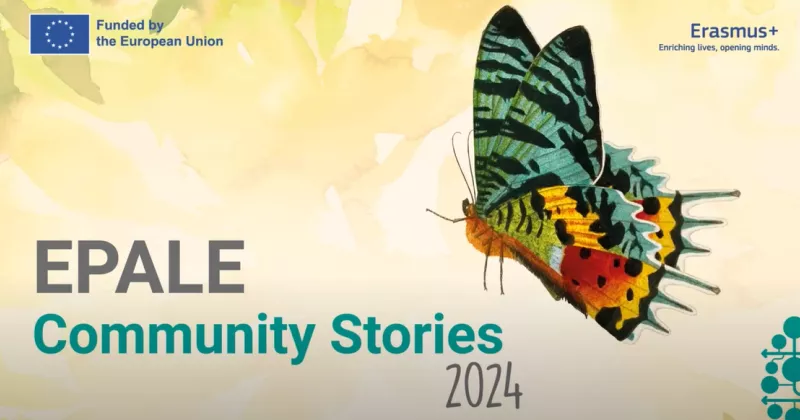La Belle Déchette: a recycling centre promoting a socially responsible and sustainable future

The number of initiatives to ensure that we consume better, waste less and live in a sustainable and environmentally friendly way, both personally and collectively, is rising steadily in our region. People are becoming increasingly aware of these issues. There are initiatives at both the local and European level. I met with Sophie Bury, coordinator of associations and raising awareness of reuse in Rennes. La Belle Déchette is a slightly different initiative to many of the recycling centres in France and no doubt elsewhere. It brings a more supportive, more inclusive dimension. Reuse concerns everyone, in every social category. La Belle Déchette is also a member of the Ligue de l’Enseignement and the CRESS (Regional Chamber for the Social and Solidarity Economy). It is a great combination of Popular Education and the Social and Solidarity Economy. I wanted to find out more about this great initiative.
David Lopez: La Belle Déchette is a recycling centre that promotes solidarity and re-use. Can you describe your work and how the association is organised?
Sophie Bury: Our approach is based on 5 pillars:
- Collection. We collect items from private individuals, professionals and local authorities.
- Sorting. Each item is carefully sorted according to category and condition.
- Restoring value. We restore value to these often-neglected items, giving them a second chance. This can range from cleaning dirty dishes to complete furniture repairs, including replacing hinges, sanding and painting.
- Sale. Once the items have been reconditioned, they go back on sale in one of our two shops in Rennes.
- Raising awareness. As well as the work we do, we also draw attention to a more sensible way of consuming, one that is more responsible and respectful of the environment. We also offer workshops and events to inspire and educate people on the principles of reuse and on preserving our resources.
David Lopez: You also raise awareness through “action”. Can you explain how the recycling workshops and other training activities work (volunteers, local residents, etc.)?
Sophie Bury: Raising awareness is central to our mission, which is to promote a more sustainable society that consumes less and uses less energy.
This initiative involves setting up reuse workshops. Our workshops teach manual techniques, but also raise awareness of the need to reuse materials. They are run either by employees of the recycling centre or by people with a wide range of expertise with whom we work throughout the year. It is a collective effort, since the aim is to select materials directly from our storage, La Belle Déchette, to use in these workshops.
We raise awareness through a variety of initiatives, such as training, particularly for staff at waste collection centres, and visits by groups. These site visits are adapted to suit the audience (adults or children) and offer a unique immersive experience. For example, we have organised visits for schools and universities, from primary school to Master’s level. These guided tours are designed to bring the principles of sustainability to life in a practical and inspiring way.
Volunteers are involved in every aspect of our work at La Belle Déchette. Even without prior skills, volunteers can participate fully in our various initiatives. For example, volunteers can contribute to the complete refurbishment of a piece of furniture under the supervision of a qualified employee. We also organise theoretical training courses on donations to the recycling centre. The aim of these sessions is to provide a deeper understanding of what happens to items that are dropped off at the centre, through concrete information, discussions on good practice, appropriate actions and how to welcome users.
As part of these training sessions, we also offer role-playing exercises to answer users’ questions about how donated items are handled, our various partners, and the reasons why certain types of items are refused. There is also a section devoted to raising awareness of reuse, with suggestions for simple actions to encourage this practice.
David Lopez: You are planning a new event in March 2024: workshops with 5 spaces. Can you tell us about this new event?
Sophie Bury: This new initiative is named L’Atelier, and is a space dedicated to manufacturing, repairing and transforming materials. Designed in synergy with the recycling centre’s pre-existing activities, such as reuse, recovery and awareness-raising, L’Atelier provides a place where members have access to manufacturing machines, tools and skills, with the aim of sharing and creating collectively. The materials available are exclusively second hand, adding an extra dimension to the projects undertaken. L’Atelier is organised into five distinct areas: plastic, metal, wood, textiles and digital fabrication, offering a multitude of possibilities. You can cut boards to build shelves, weld metal parts to create lighting, make your own cushion covers, embellish a basic jumper with embroidery, design jewellery from recycled plastic or use a 3D printer to create spare parts for your appliances.
L’Atelier meets a need for access to safe equipment and tools that are often difficult to find in urban environments. It also enables professionals and craftspeople to diversify their activities and products by using machines that can be expensive, such as laser cutters, digital milling machines or digital embroidery machines. L’Atelier also plays an essential role in raising awareness, encouraging the public to think about their consumption habits and the reparability of objects, and to try out manufacturing and manual work processes for themselves.
The projects carried out at L’Atelier also provide opportunities for technical learning and the creation of social links. It is a place where you meet other people, who share their techniques and materials, enriching the creative process.
David Lopez: La Belle Déchette is a member of a regional network, the RAB, which comprises 73 recycling centres and 289 full-time equivalent employees. Can you tell us about the new jobs generated by these recently created activities?
Sophie Bury: For the past 3 years, La Belle Déchette has been part of the “Université Bretonne du Réemploi” group run by the CRESS (Regional Chamber for the Social and Solidarity Economy) in Brittany. The Université Bretonne du Réemploi project aims to create training tailored to existing and emerging professions in social and solidarity-based reuse structures, by promoting the sharing of knowledge and expertise within the Breton network of recycling centres. La Belle Déchette is working with a number of Breton recycling organisations to develop a training course for reuse technicians. As a result of this work, the job of reuse technician was recognised as an emerging profession by France Compétences in December 2022. This was a great accolade and shows that our professions are the professions of the future! The first training session, involving nine trainees, started in October 2023 in Rennes. In early 2024, at the end of this first training session, the participants will receive certification as reuse technicians. This training course is one of the tools used to professionalise reuse structures, and more particularly those involved in solidarity-based reuse.
David Lopez: Can you add a few more details to help us learn more about La Belle Déchette?
Sophie Bury: La Belle Déchette is now based at Les Halles en Commun, in the dynamic Courrouze district of Rennes. This constantly evolving space is part of a drive to preserve our industrial heritage. Les Halles en Commun aims to be a lively, friendly place where experimentation is encouraged. The space is located in the heart of a district steeped in history, and embodies an alternative vision of urban life, inviting residents to rethink the way they live, travel, work and shop.
This project is fully integrated into the district’s urban renewal strategy, as a genuine laboratory for experimentation. It brings together around twenty social economy organisations focusing on the circular economy, culture and urban planning. The project was recognised by the French government’s “Sustainable City Demonstrator” programme and aims to illustrate the possibilities offered by the city of tomorrow. Ultimately, Les Halles en Commun will house around 200 social housing units, a cooperative space dedicated to the social economy, offices, shops and new public spaces. The upcoming space embodies an innovative and collective vision of urban planning, where sustainability, solidarity and conviviality are at the heart of the project.
To find out more, visit: https://labelledechette.com
Contact Sophie Bury: sensibilisation@labelledechette.com
David Lopez, EPALE France expert
[ Translation : NSS EPALE France ]





